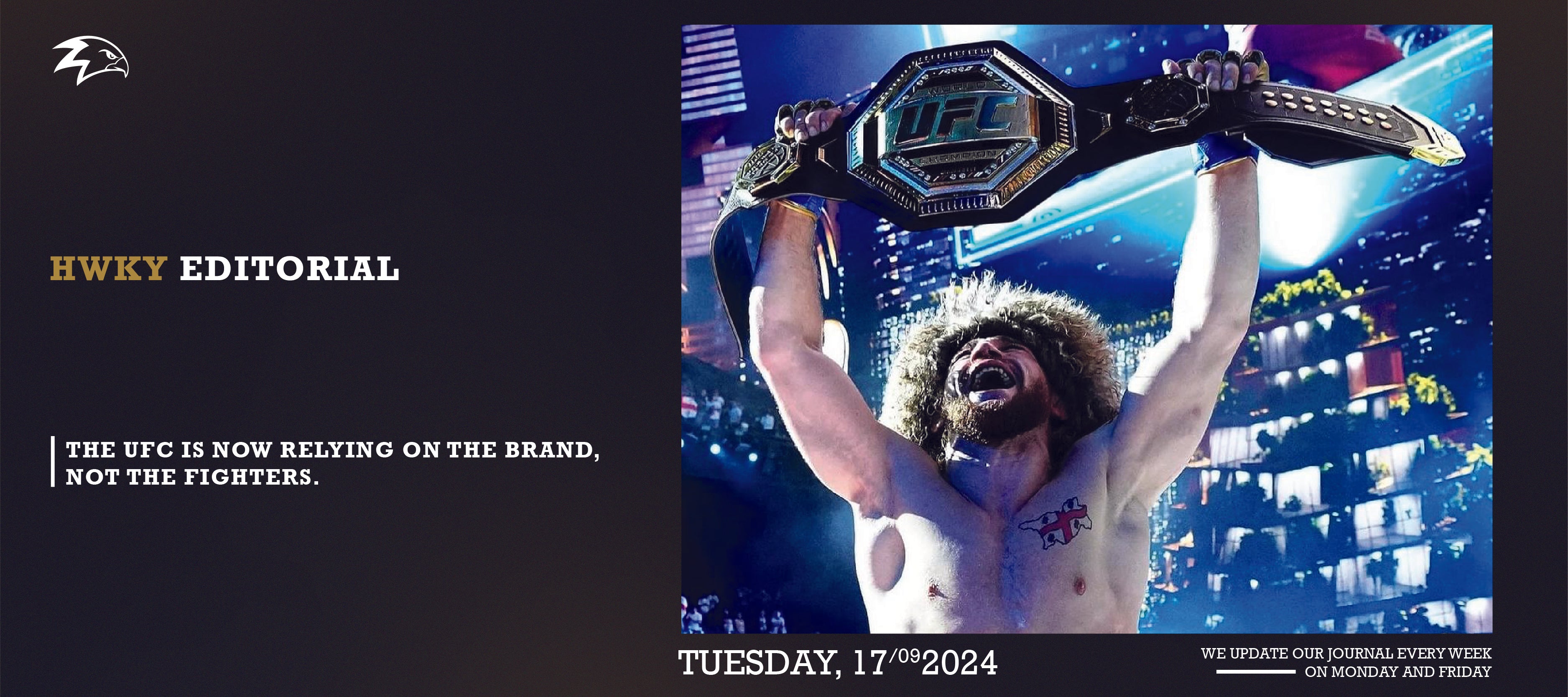
The UFC Is Now Relying on the Brand, Not the Fighters
The UFC has always been synonymous with electrifying fights, unforgettable moments, and larger-than-life superstars. In its earlier years, names like Conor McGregor, Ronda Rousey, Anderson Silva, Brock Lesnar and Jon Jones carried the organization, bringing their unique blend of talent and charisma to the octagon. But recently, a shift in the UFC's approach has emerged—one that places more emphasis on the brand itself rather than the athletes that helped build it.
At UFC 306: Noche, we saw a clear example of this change. While the event was held at the awe-inspiring Las Vegas Sphere, known for its cutting-edge visual effects, the actual fights left much to be desired. The main event saw Merab Dvalishvili win the bantamweight title with a clinical but unspectacular victory over Sean O’Malley.
In the co-main, Valentina Shevchenko reclaimed her flyweight belt from Alexa Grasso in another workmanlike performance. Neither fight will be remembered for its excitement.
That’s a problem UFC fans have become all too familiar with.
Stylistic Champions and Underwhelming Cards
The UFC has always had its share of champions who dominate through technique rather than sheer aggression. But in today’s era, it seems that more and more of the champions have leaned into this risk-averse style, resulting in fights that, while impressive in their execution, fail to ignite fan enthusiasm.
Technical mastery has its place, but when most title fights end up being five-round decision battles, the energy can start to fizzle.
These lackluster performances wouldn't have been an issue during the heyday of superstar champions. Back then, the mere presence of a magnetic figure in the octagon was enough to command attention. Now, with fewer superstars to lean on, the UFC's marquee events are driven more by the hype around the venue or the production value than the action in the cage itself.
The UFC Brand Carries Itself
Despite the absence of high-octane fights and star power, the UFC seems to care less than ever. Why? Because the UFC brand itself has grown to such an extent that it no longer needs the megastars it once did. The organization has built a brand that is so powerful, so recognized, that the product seems to sell regardless of who's fighting.
In the past, UFC events would live or die by the fighters at the top of the card. But in today’s landscape, it’s the UFC name that holds the weight. They can sell out arenas, generate massive pay-per-view buys, and pull in sponsorships, regardless of whether they have a superstar headlining the card. This reliance on the brand rather than individual fighters gives the UFC a sense of security that wasn’t possible when they were more reliant on a handful of stars.
What’s Missing? The Stars
While the brand is stronger than ever, the absence of true superstars is noticeable. Fighters like McGregor and Rousey transcended the sport, drawing in casual viewers and creating moments that had cultural significance.
Today, the UFC roster is brimming with talent, but few fighters possess that elusive "it" factor that makes them household names.
This lack of star power is compounded by the fact that many title fights lack the intensity and drama fans crave. The formulaic nature of some recent title defenses has left many cards feeling underwhelming, and that risks alienating the fanbase that craves excitement and unpredictability.
The Brand Over the Fighters: A Risky Gamble?
By focusing more on the brand and less on building superstars, the UFC risks becoming stagnant. While they continue to push forward with new ventures, venues, and production experiments (like the impressive Sphere at UFC 306), there’s no denying that the product inside the cage is what keeps people coming back. When that product becomes predictable, it can wear on fans' enthusiasm.
The UFC has always been at its best when it combined technical mastery with captivating personalities and explosive fights.
As the organization continues to lean on its brand power, it’s worth asking whether this strategy is sustainable in the long term. Fans don’t just tune in to watch UFCthey want to see thrilling matchups, emotional rivalries, and fighters who transcend the sport.
The UFC may be coasting on the strength of its brand for now, but if the action inside the octagon continues to lack excitement, even the most loyal fans might start to lose interest. After all, it’s not just about the lights, the visuals, or the hype it’s about the fight.





Leave a comment
This site is protected by hCaptcha and the hCaptcha Privacy Policy and Terms of Service apply.